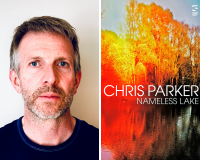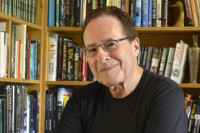
I finally landed a 6-figure book deal after 20 years of trying to become an author. Here's how I did it.
businessinsider.com – Wednesday July 19, 2023

Scoring a book deal is always an accomplishment, but after I dreamed of becoming an author for more than 20 years, selling a nonfiction project for six figures to a Big Five publisher felt both astonishing and hard-earned.
Like a lot of people, I'd always secretly harbored ambitions of becoming a writer, but I didn't start taking my craft seriously until my mid-20s when I invested in a Master of Fine Arts. Even then, writing remained a hobby for another few years.
In 2010, I lost my job in elementary education when an essay I wrote was publicized by the New York Post and the whole world — including my then-employer, the NYC Department of Education — was made aware that I had worked as a stripper and prostitute before becoming a schoolteacher.
I turned a humiliating experience into a flourishing freelance career, and I got serious about my ambitions to become an author.

Chris Parker on writing women narrators and seeing the world from their eyes
culturefly.co.uk – Monday July 17, 2023

I’ve been asked why I chose to make the narrator of my first novel, Nameless Lake, a woman, but really, that’s putting it the wrong way round. Something made me start writing in the voice of this character – Emma – and I only realised later that she would be the perfect narrator for the story I wanted to tell.
The roots of my decision might lie decades in the past, with the whole family rushing to the sofa in response to the mournful brass blare of the Coronation Street theme tune. Here was a world dominated by women’s voices, sharp and wild and larger-than-life yet somehow more real than anything else. I absorbed these voices long before I had an inkling that someone, somewhere had written them.
But years later, through some miracle of luck and time travel, I stood in a bar in Manchester while the Street’s creator Tony Warren shook my hand and told me he had enjoyed an episode I had written. I had somehow stepped into a parallel universe and was part of a team responsible for putting words in the characters’ mouths, fifteen of us taking turns to pick up the endless story and bring it to life by getting inside the skins of these people whose faces were as familiar to us as our own.

My A.I. Writing Robot
newyorker.com – Tuesday July 11, 2023

In May, I was confronted with a robot version of my writer self. It was made, at my request, by a Silicon Valley startup called Writer, which specializes in building artificial-intelligence tools that produce content in the voice of a particular brand or institution. In my case, it was meant to replicate my personal writing voice. Whereas a model like OpenAI’s ChatGPT is “trained” on millions of words from across the Internet, Robot Kyle runs on Writer’s bespoke model with an extra layer of training, based on some hundred and fifty thousand words of my writing alone. Writer’s pitch is that I, Human Kyle, can use Robot Kyle to generate text in a style that sounds like mine, at a speed that I could only dream of. Writer’s co-founder and chief technology officer, Waseem Alshikh, recently told me that the company’s goal is to use A.I. to “scale content and scale language.” For more than a month now, I have been experimenting with my literary automaton to see how well it accomplishes this task. Or, as Robot Kyle put it when I asked him to comment on the possibility of replacing me: “How could a machine generate the insights, observations, and unique perspectives that I provide as a human?”

How does anyone make a living writing about what they love these days?
poynter.org – Monday July 10, 2023

You may have to subsidize the price of passion, but you don’t have to become a foot soldier in the clickbait content cavalcade.
A few months ago, Serena Coady, a London-based journalist, wrote on Twitter that she was courted by an editor at an entertainment news site that “rhymed with Green Pant.” That wasn’t newsworthy; it was the limbo champion rates, which Coady shared.
My disgust — what the hell are “Super Features”? — soon hardened into indifference. I’ve been a full-time freelance writer since 2008. Inspired by Roger Ebert’s annual “Movie Yearbooks” and Entertainment Weekly during its smart, snarky mid-’90s heyday, a healthy chunk of my career was spent trying to be an entertainment writer. I saw gigs like this, built on speed and clicks and being kind of, sort of, not really adjacent to showbiz, all the time.
I had some of them. I wrote posts for an entertainment blog for $6 a pop. I profiled actress Rose Byrne, who was lovely, for the unpleasant rate of $12. This personal essay on dating shows fetched me nothing.
I’ve written about my travails as a movie reviewer before. The balcony isn’t just closed; I fear it’s bricked solid.

How a Midwest Teacher Went From Posting Scary Stories on Reddit to a Film Deal for His Debut Novel
uk.sports.yahoo.com – Wednesday June 28, 2023

Jimmy Juliano’s debut novel, “Dead Eleven,” has an unusual backstory.
The book, out Tuesday, is a spooky tale of a remote island where inhabitants are obsessed with ’90s nostalgia, which earned a coveted jacket blurb from “Goosebumps” guru R. L. Stine and already has a film development deal with A+E Studios. But Juliano is the first to admit that his path into publishing and Hollywood “feels like a back door into the industry.”
Juliano, an educator who works at Lake Forest High School in suburban Chicago, first made a name for himself as u/Red_Grin, a Reddit user posting scary stories to the NoSleep subreddit. The community, with over 17 million members, is “a place for redditors to share their scary personal experiences” — and while the stories (probably) aren’t real, “treat everything as though it is a true recount of events.”

Creative writing: stretching your imaginative powers
silversurfers.com – Friday June 23, 2023

Most children make up stories when they are young but as real life begins to take over, these creative powers are often left to dwindle.
While some people continue writing and making up stories throughout their lives, others tend to stop when they reach a certain age.
However, there are many benefits associated with creative writing and it’s a hobby that’s well worth re-exploring as an adult.
Put your imagination to work by finding out how it feels to make up stories, write poetry, pen your memoirs or simply experiment on the page.

Taking poetry off the page
thebookseller.com – Tuesday June 20, 2023

Are you a lover of visual poetry and just don’t know it yet? From childhood encounters with Lewis Carroll’s "The Mouse’s Tale" through to the influence of the concrete poetry movement on design (would the Yves Saint-Laurent logo have been invented without the inventions of the Brazilian concrete poets of the 1950s? – I doubt it), visual poetry is in the air all around us. More than that, it’s also increasingly incorporated into architecture and printed on buildings, and with a new exhibition called "Poetry & Architecture" just opened at Hay Castle, there’s no better time for publishers to embrace this genre-shattering form.

The Novel Opening
By G. Miki Hayden
Instructor at Writer's Digest University online and private writing coach
firstwriter.com – Sunday June 4, 2023

The opening of your novel is an opportunity to seize the interest of the agent, the editor, and/or the reader. Opportunities are to be taken, and this is a particularly meaty one. Here is where you set the hook, often within the first paragraph.
What do you want from the persons reading your initial words? You want them to be curious about “what comes next?” And that’s what you want throughout the novel but the initial words or pages is perhaps the only chance you have to elicit that response. Because if you don’t set the hook, the agent, editor, or civilian reader will pass you by.

How to Start a Literary Magazine
lithub.com – Wednesday May 31, 2023

In the latest “Craftwork” episode, Declan Meade talks with Brad about starting and editing a literary magazine. He is the founding editor and publisher of The Stinging Fly, one of the world’s premiere literary magazines, based in Dublin, Ireland. You may have read about Declan and The Stinging Fly in the New York Times back in April 2023, in a feature story by Max Ufberg.
Brad Listi: What about for people listening who might want to submit, but also people who might have an interest in starting their own magazine? I’d be interested to hear you talk about the editorial process when somebody gets a yes, and what in general the editorial process entails at the Stinging Fly. I have to believe that it’s lovely to get a story where you feel like it’s almost all done. And usually I think when a writer is in command of the work, there usually isn’t a ton to do. But are there instances where the work is like 75 percent of the way there, and in the editorial process you get the rest of the way? What does it look like for somebody who gets a yes to work with you in an editorial capacity?

Peter James reveals thought process in writing his novels
theargus.co.uk – Tuesday May 30, 2023

Best-selling writer Peter James is better known for words than numbers and has confessed he didn't care much for maths at school.
But now the Grace author has teamed up with the charity National Numeracy - and revealed how numbers have become key to his work.
In an exclusive interview to support National Numeracy Day, Brighton-born Peter gave a unique insight into how he writes his best-selling books.
How do you use numeracy in your work?
When I’m starting a new book – and I’ve done this for years – I set myself a target for each week. I find the first 20 pages are very slow because I go back and back and back, and then as I progress with a book it gets quicker and then towards the end it slows down again.
I started the 20th Roy Grace novel on April 24 so for that Saturday, 29, I put a target of page 5. Then the following week, page 15, then the following week, page 30. Then I go slightly bigger – up to page 50. Every book of mine is around about 450 pages long.
Depending on if it’s a busy week or a quiet week I’ll set myself a target of either ten, 15, 20 or 25 pages. I go through week by week until I get to what I call ‘page 500’ and that’s the finish. So at the moment, the target for page 500 is November 25. My pages are double spaced and about 250 words.
Each week, if I’m over my target I feel really happy but if I’m under then I know I’ve got to write more the next week. It really works for me, I can tell where I am every week in terms of the schedule for the book. Numeracy really helps me with keeping on track in terms of scheduled writing.
Get the free newsletter | Submit a news item or article | Get Writers' News for your website





